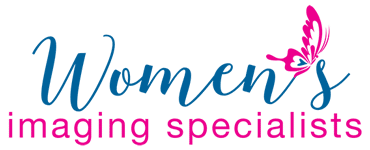Breast cancer remains one of the most prevalent cancers, affecting 1 in 8 women in the United States. While numerous factors influence its development, hormones can significantly contribute to a woman’s overall risk of breast cancer. Understanding the connection between hormones and breast cancer risk is crucial for both prevention and treatment.
Hormones and Breast Tissue: Hormones are like messengers in our bodies, produced by glands to regulate many processes. When it comes to breast cancer, estrogen and progesterone are key players. They help breast tissue grow, especially during puberty, periods, pregnancy, and menopause.
Estrogen and Breast Cancer Risk: Estrogen, a hormone found in women’s bodies, helps breast tissue grow. But too much estrogen, whether from our bodies or hormone therapy, can raise the risk of breast cancer. Factors such as early puberty, late menopause, never being pregnant, or postmenopausal hormone therapy can increase estrogen exposure and, in turn, breast cancer risk.
Progesterone and Breast Cancer Risk: Progesterone, another hormone involved in the menstrual cycle and pregnancy, also influences breast cancer risk. Progesterone works with estrogen to stimulate the growth of breast tissue. While the exact role of progesterone in breast cancer development is complex, evidence suggests that high levels of progesterone may contribute to an increased risk of certain types of breast cancer.
Hormonal Effects Across Life: Hormones affect breast cancer risk differently as we age. During reproductive years, changes in estrogen and progesterone levels with menstrual cycles can affect breast tissue. Pregnancy and breastfeeding, which change hormone levels, may offer some protection against breast cancer temporarily. But later in life, things like hormone therapy, birth control pills, and being overweight can change hormone balance and affect breast cancer risk.
Reducing Breast Cancer Risk
While hormonal factors contribute to breast cancer risk, there are proactive steps women can take to reduce their risk:
Prioritizing Mammograms Annually: Having an annual mammogram beginning at age 40 remains crucial for early detection of breast cancer and best treatment outcomes, regardless of hormonal influences. Women with elevated risk factors or a strong family history should consult their physician regarding the best age to begin annual screenings and any supplementary tests recommended.
Maintain a Healthy Lifestyle: Adopting a balanced diet, engaging in regular exercise, limiting alcohol consumption, and avoiding tobacco products can help regulate hormone levels and reduce breast cancer risk.
Stay Informed About Hormonal Therapies: For women considering hormone replacement therapy or oral contraceptives, it’s essential to discuss the potential risks and benefits with healthcare providers and make informed decisions based on individual health history and risk factors.
The Power of Knowledge
While hormones play a significant role, they’re just one part of the picture. Having a better understanding of how hormones, genetics, lifestyle, and the environment interact gives women the power to take proactive steps to lower their breast cancer risk. It’s important to remember that staying informed, prioritizing regular screenings, and making healthy lifestyle choices are all essential parts of managing your breast health journey.


